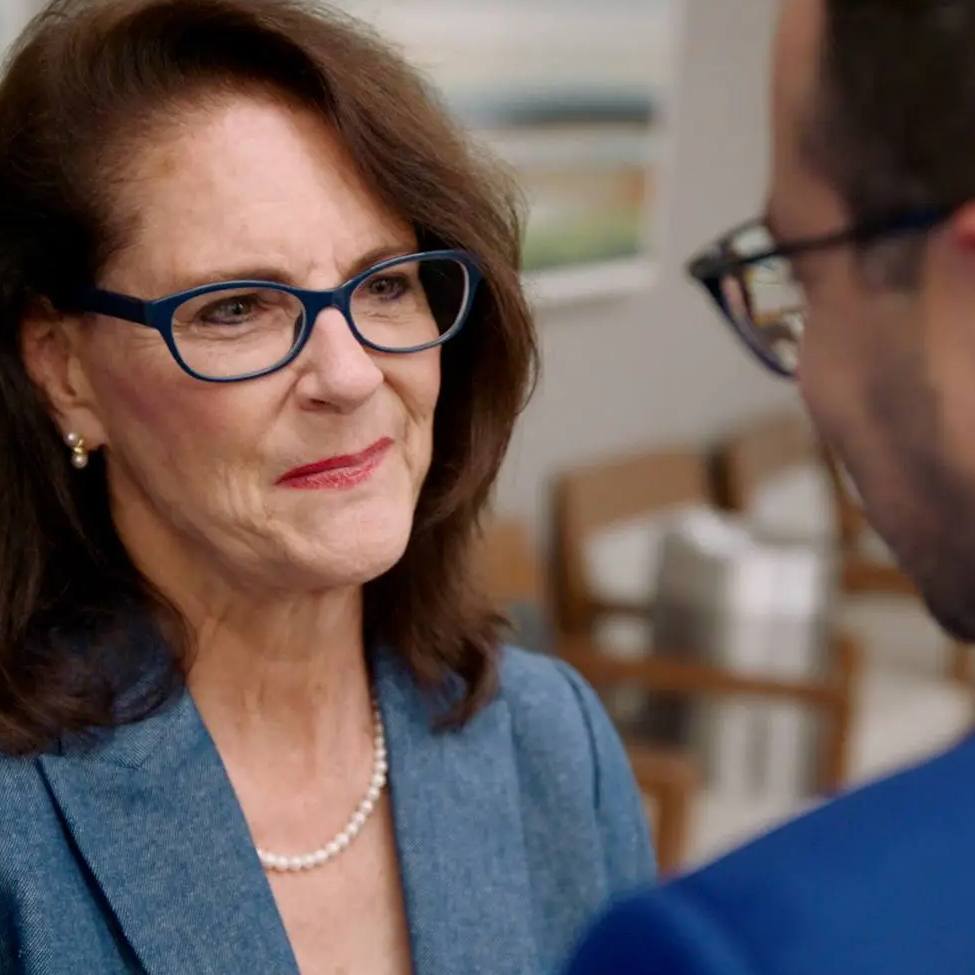-
Clinical Nurse Specialist – A Day in the Life at Mayo Clinic
A Clinical Nurse Specialist (CNS) is an advanced practice nurse who works with nursing staff to advance nursing practices, improve patient outcomes, and provide clinical expertise to affect system-wide changes. CNS hold at least a masters degree in Nursing and have completed the certification process issued by the American Nurses Credentialing Center.
Mayo Clinic's Arizona campus has several CNS on staff to support our inpatient and outpatient care needs. Nadine Lendzion shares her experience as a CNS, Mayo Clinic Employee, and Arizona resident below.
Name: Nadine Lendzion, MN, RN, CNRN, COCN
Job Title: Clinical Nurse Specialist (CNS)
Department: Nursing Administration
Number of years at Mayo Clinic: 12
Number of years as a CNS at Mayo Clinic: 12
What attracted you to a career in health care?
I always wanted to be a nurse. After spending 16 years in another career I finally returned to school and became a nurse. As a CNS I work within the three spheres of CNS influence: the patient, the nurse, and the organization. This framework offers me a wide variety of experiences and allows me to have an impact beyond what I thought possible.
What motivates you to continue the work you do?
Working with the extraordinary people at Mayo Clinic motivates us all to be better, to reach further and accomplish more. The challenge to be my best motivates me. I do something new or different every day. Seeing nurses understand a clinical situation or clinical concept or for a patient to understand their illness better is what motivates me.
What were your educational steps for this career?
I began my nursing career as an associate degree RN. While at Mayo Clinic, I went on to complete my bachelor's and master's in nursing with the goal of becoming a CNS. I received my specialty certification in neurosciences while completing my BSN.
What licenses, degrees, certifications, and/or training are required for your job?
The Arizona State Board of Nursing requires a CNS to be certified by the Board as a clinical nurse specialist. The CNS must hold a graduate degree with a major in nursing, be certified in a clinical specialty or, if certification is not available, provide proof of competence to the board.
I have a master's degree in Nursing and am nationally certified as a neuroscience registered nurse and a certified ostomy nurse, certified by the Arizona State Board of Nursing as a Clinical Nurse Specialist.
What other jobs/employment did you have that prepared you for this job?
I started my career as a new graduate and was given so much opportunity to explore other roles within nursing. As a Charge Nurse I learned to look at the bigger organizational picture and was excited to learn how many avenues were open to me. I participated in many clinical committees and saw firsthand the many ways to impact patient care beyond the bedside. I had a wonderful CNS mentor when I graduated from my program. She taught me how to link organizational priorities with the clinical setting and to the patient. That mentorship proved invaluable as I grew in the CNS role.
Define the focus of your department?
The goals of Nursing Administration are to deliver healing care for every patient, every day, enhanced by relationships based on effective communication, collaboration and mutual respect;
to provide educational opportunities in clinical nursing and professional development for nursing staff, affiliated students and faculty and regional, national and international nursing colleagues; and to improve patient care and advance the discipline of nursing through theory-driven nursing research and incorporate research findings into nursing practice.
What advantages does a Mayo Clinic CNS role have over other hospitals?
Mayo Clinic understands the role of the CNS and how the CNS can contribute to excellence in patient care, research and education. A CNS at Mayo Clinic is viewed as an integral part of the organization and is invited to participate in decision-making at many levels. This is not the case at all organizations. At some institutions, the CNS role appears less integral and is viewed as a non-essential part of patient care.
What advice would you give others who want to pursue a career as a CNS?
I would encourage any nurse to explore the CNS role. A nurse with strong clinical skills and a desire to expand their role is a perfect candidate to become a CNS. I have mentored nurses as they explore their career options and try to portray the CNS role as a desirable option.
What changes have you seen in your profession over the years, i.e. technology, process and procedures, tools, patient care requirements, etc?
I have been a CNS for more than 12 years and have seen the opportunities for CNS grow. Professional CNS associations at the national and local level have helped to clarify and define the role of the CNS. Patient care has become more complex with sicker patients. The unique skills of the CNS can improve patient outcomes as well as organizational outcomes. Mayo Clinic’s use of the electronic medical record has made data accessible to quantify those outcomes.
What do you like about living in Arizona?
I have lived in Arizona for over 50 years. I love the sun, the desert, the mountains and the option to change climates with only a two-hour drive. I like the people of Arizona and the casual lifestyle. I like that Arizona has Mayo Clinic!
For more information on nursing careers at Mayo Clinic, visit www.mayoclinic.org/jobs



















